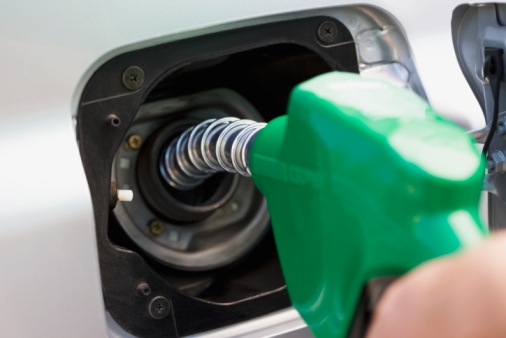Gasoline prices, which have been inching higher for months, now top $3.67 per gallon for regular, on average, nationwide. At some point, the rising price will batter consumer spending, although experts differ on what that level is. However, it is nearly certain that if prices continue to increase, gross domestic product (GDP) gets threatened.
GDP is already under pressure, having fallen 2.9% in the first quarter, which was worse than most estimates. One reason may be the unprecedented cold weather. Additionally, however, the American consumer’s activity could have been fatigued by factors that range from the still-high unemployment to stagnant household income, at least as measured by current dollars. According to the Washington Post, this level is actually down from 1989 to 2012.
The problem with gas prices, beyond their increase, is that they are highest in a number of the most populous states, according to GasBuddy. More than 25% of Americans pay above $3.80. California residents pay $4.12, and in New York $3.94. The price is $3.89 in Michigan and $3.85 in Illinois. The only very large state exempt from prices well above the national average is Texas. There the price of regular averages only $3.48 per gallon.
The price in Texas illustrates the importance of proximity to refineries, which sharply cuts the cost of transportation. The Gulf states of Alabama, Mississippi and Louisiana have prices below $3.46. Being close to refineries, however, is only relatively helpful. Oil prices remain the primary contributor to what drivers pay. Troubles in the Middle East have pushed the cost of a barrel of crude higher than $107. A number of experts believe that more violence and instability in the region could put the price above $110.
ALSO READ: Ten Cars Americans Don’t Want to Buy
Without any question, the consumers hurt the most by the rise in the cost of gasoline are lower- and middle-class families and those with people who must drive great distances. The tipping point at which they cease to become significant consumers is when the cost of housing, clothing and transportation reach the limit of household budgets. In some families, that has already happened.
Worries about second-quarter GDP have to be based to some large extent on the rising price of gasoline, which for the time being shows no sign of easing up.
In 20 Years, I Haven’t Seen A Cash Back Card This Good
After two decades of reviewing financial products I haven’t seen anything like this. Credit card companies are at war, handing out free rewards and benefits to win the best customers.
A good cash back card can be worth thousands of dollars a year in free money, not to mention other perks like travel, insurance, and access to fancy lounges.
Our top pick today pays up to 5% cash back, a $200 bonus on top, and $0 annual fee. Click here to apply before they stop offering rewards this generous.
Flywheel Publishing has partnered with CardRatings for our coverage of credit card products. Flywheel Publishing and CardRatings may receive a commission from card issuers.
Thank you for reading! Have some feedback for us?
Contact the 24/7 Wall St. editorial team.




